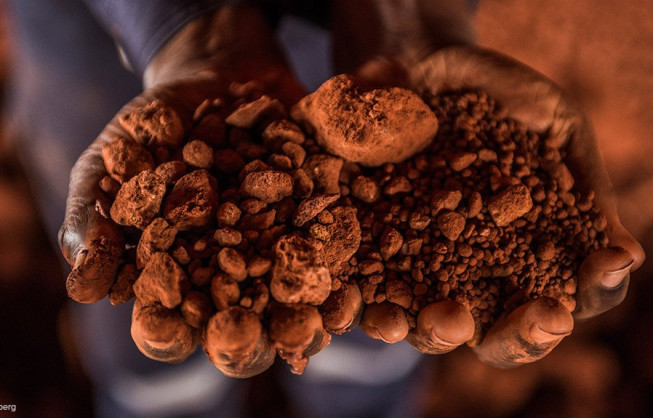Bauxite miners urge Indonesia to rethink export ban as deadline looms
JAKARTA - Days before Indonesia is set to implement a ban on exports of unprocessed bauxite, miners have again implored the government to reconsider the policy because domestic facilities are inadequate for processing all of their output.
Indonesia, the world's sixth-largest bauxite producer, is due to stop shipments of the raw material for aluminium starting Saturday under a 2020 law banning all exports of metal ores that is aimed at driving investment in refineries.
The government last month gave miners of other ores including copper and iron a one-year relaxation to allow more time to finish smelter construction, but it kept the ban on bauxite exports.
Indonesia has three smelter-grade alumina plants and one chemical grade alumina plant, with combined input capacity of nearly 14-million tonnes, official data show, which mining minister Arifin Tasrif said last month was enough to absorb ore production.
But Ronald Sulistyanto, head of the Indonesian Bauxite and Iron Ore Companies Association, told Reuters on Monday that production has reached roughly 30-million tonnes per year, which could force miners to cease activity if there is no market for their excess ore.
The bauxite export ban was intended to replicate Indonesia's success in attracting foreign investors into nickel processing after a ban on outbound shipments of unprocessed ore in 2020.
However, starting at roughly $1.2-billion, a bauxite processing facility can cost triple that of a nickel pig iron smelter, and miners have struggled to secure bank financing since 2009, when Indonesia first announced a plan for banning exports, said Sulistyanto, whose group represents 28 miners.
"Our members are hoping that there will be a re-evaluation by the government if they want this mining industry to move forward," he said. The Energy and Mineral Resources Ministry has not responded to the group's pleas.
"The miners want to develop these smelters, but they need support instead of punishment," he added, calling for authorities to guarantee bank loans for alumina smelters.
However, Irwandy Arif, special staff of the mining minister, told Reuters that companies have been given enough time to comply and the ban will be implemented as planned.
The government could consider exempting some miners from the ban if their smelters are at least half-built, but there has been no material progress in seven of eight alumina projects underway, Irwandy told Reuters.
The government has tried to facilitate meetings between mining companies and banks, but could not provide guarantees, Irwandy said.
"One of the criteria was progress in smelter construction, and for bauxite, there was very little progress which made it difficult for the government to consider exemption," he said.
The ban is unlikely to have a significant impact to the global market as China, the world's largest aluminium producer, can procure bauxite from producers such as Guinea and Australia, which can both ramp up output, according to Fitch Solutions.
Industry experts have argued that because of available alternatives, Indonesia's bauxite ban is unlikely to attract foreign investment - unlike in nickel.






نظر: